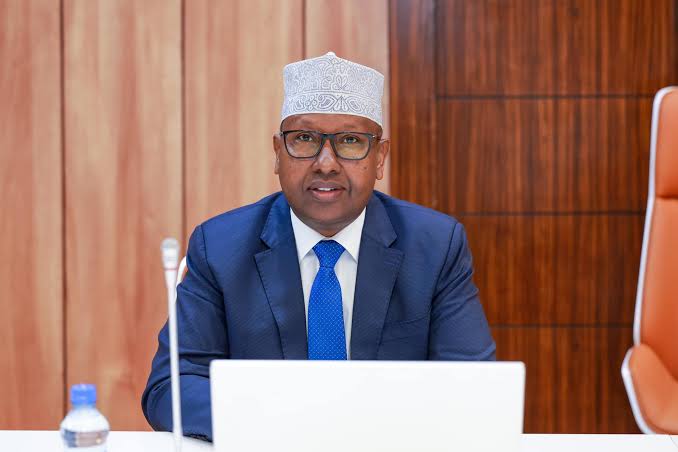Facebook Twitter (X) Instagram Somali Magazine - People's Magazine
The Jubbaland State cabinet has raised serious allegations against Somalia’s federal government, accusing it of misappropriating international humanitarian aid intended for vulnerable communities in the region to fuel armed conflicts. These claims, presented during a cabinet meeting in Kismayo on Thursday, highlight escalating tensions between Jubbaland and the federal administration in Mogadishu.
The cabinet claimed that funds and resources from humanitarian aid shipments have been redirected to organize violent clashes in parts of Jubbaland. This allegation comes despite recent federal government efforts, including the delivery of 300 tons of food aid—part of a 700-ton donation from the United Arab Emirates (UAE)—to the region. Jubbaland officials argue that such initiatives fail to mask the larger issue of resource diversion.
Adding to the grievances, the Jubbaland administration accused the Somali Civil Aviation Authority of politicizing air travel. They alleged that civilian flights from Jubbaland airports have been suspended due to federal government interference, with reports that airlines have been pressured not to operate in Jubbaland cities. Officials also criticized Mogadishu for halting critical development projects within the state.
These accusations emerge in the context of a broader fallout between the two governments. In November 2024, Jubbaland suspended cooperation with Mogadishu following a contentious dispute over local elections. During this period, Ahmed Mohamed Islam Madobe was re-elected for a third term as president of Jubbaland, a move that deepened divisions and underscored the ongoing power struggle within Somalia’s federal system.
Jubbaland, one of Somalia’s five semi-autonomous states, occupies a strategic position bordering Kenya and Ethiopia. However, the relationship between the regional government and the federal administration has been fraught with political discord, often overshadowing critical humanitarian and development needs. The federal structure, intended to provide stability and shared governance, has instead become a battleground for competing political interests, exacerbating the challenges facing Somalia.
The politicization of humanitarian aid has been a recurring issue in Somalia, where international assistance is vital for millions affected by conflict, drought, and displacement. Jubbaland’s allegations reflect broader concerns over the transparency and accountability of aid distribution. Misappropriation not only undermines trust in the government but also deprives vulnerable populations of essential resources during times of crisis.
The suspension of flights and delays in development projects further highlight the impact of political tensions on everyday life in Jubbaland. Restricted air travel disrupts economic activities, humanitarian operations, and the mobility of residents, while stalled development projects hinder progress in a region already grappling with significant challenges.
The divide between Jubbaland and Mogadishu underscores the fragility of Somalia’s federal system, where regional administrations frequently clash with the central government over authority, resources, and policy decisions. As the federal government and Jubbaland trade accusations, the people of Jubbaland bear the brunt of the fallout, with their access to aid, services, and opportunities increasingly constrained.
Efforts to resolve these disputes require genuine dialogue and a commitment to addressing the root causes of division. Strengthening federalism in Somalia depends on fostering cooperation, ensuring equitable resource distribution, and prioritizing the needs of the population over political rivalries. Without meaningful reforms, the cycle of conflict and mistrust will continue to hinder Somalia’s path toward stability and development.
The ongoing tensions between Jubbaland and the federal government have drawn international attention, with stakeholders urging both sides to prioritize humanitarian needs and governance over political disputes. As regional and federal leaders navigate these challenges, the future of Somalia’s federal system and its ability to deliver for its people remain in question.

